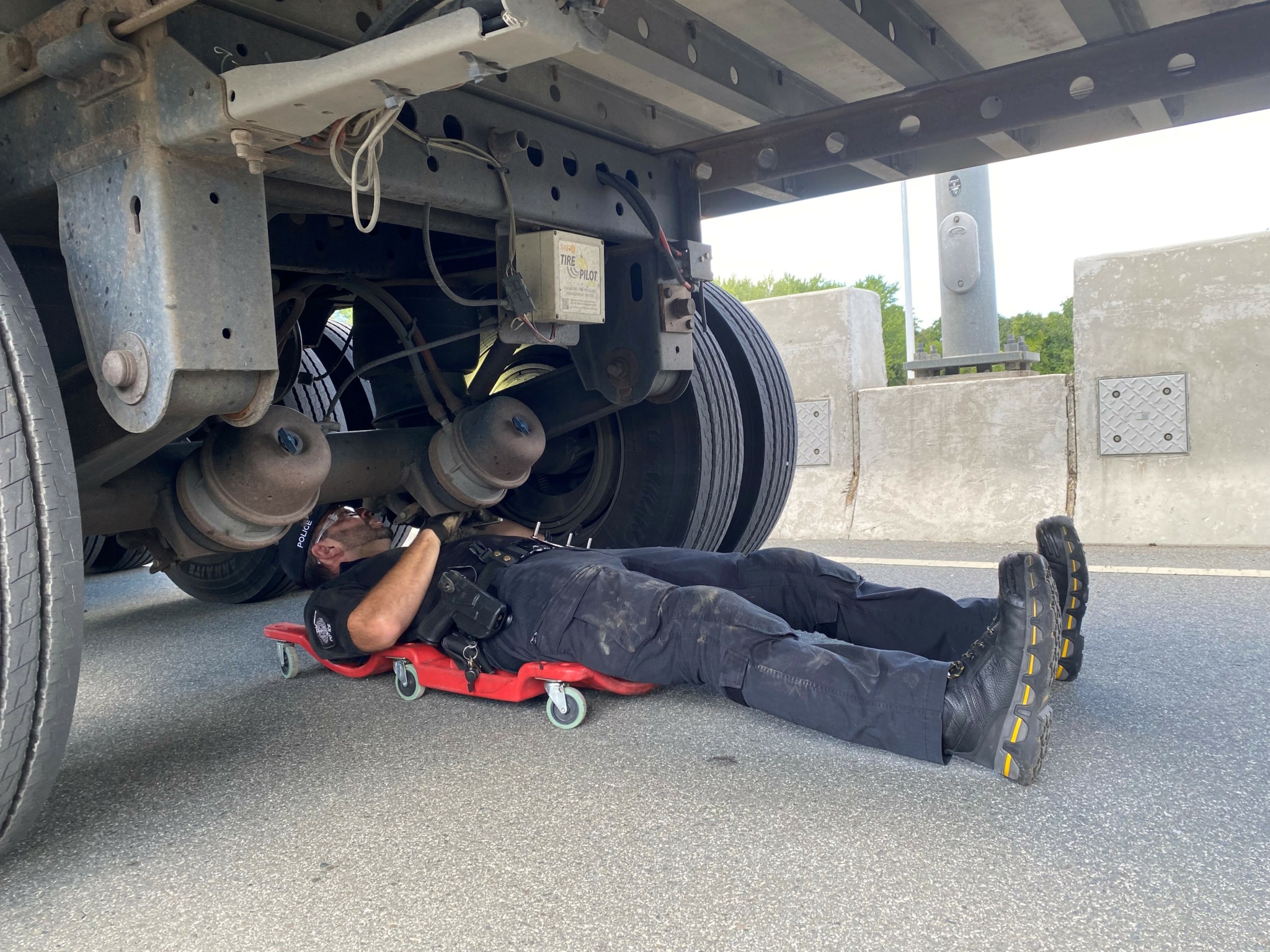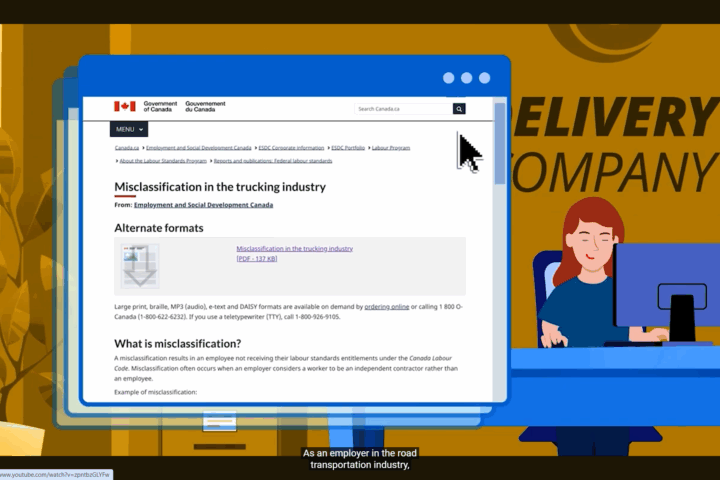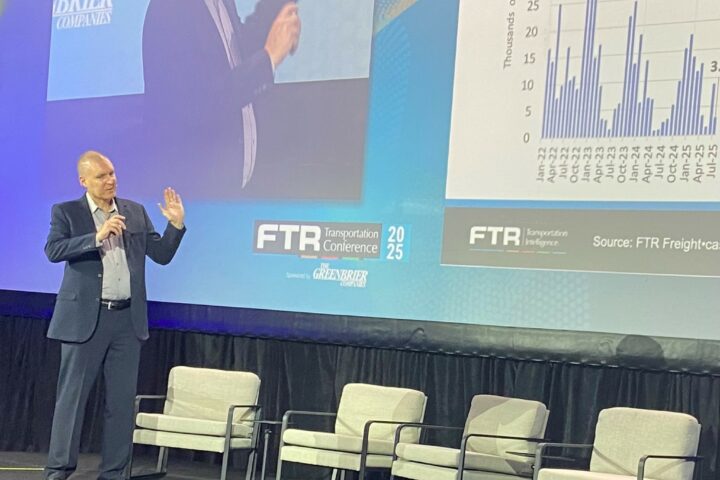Stop! And yes, brakes need to be working properly to stop. Truck drivers must check their brakes before heading out on the road.
It was clear that many truck drivers didn’t do so as Halton Regional Police Service (HRPS) and MTO officers pulled them in for inspections on Aug. 27 during the Commercial Vehicle Safety Alliance’s (CVSA) Brake Safety Week.

Officers found major brake defects in most trucks that were inspected in the lay-by on Steeles Ave. in Halton Hills, Ont. The list was varied and included shoe linings not in contact with the drum, friction surfaces rusted over, and air leaks. Some defects were found on tractor brakes, others on trailer brakes and in some cases — on both.
All the drivers said they had done a pre-trip inspection, and none of them cited any defects in their paperwork. In one case, the trucker had just left the yard and completed a pre-trip inspection six minutes before being pulled over. And the officer found a brake defect almost immediately.

Marc Taraso, commercial vehicle inspector, HRPS commercial vehicle unit, encouraged drivers to perform a proper pre-trip inspection. He also urged operators to give their drivers the time to do that, and to listen to drivers when they report defects and fix them.
He’s heard too often from drivers that they were told to drive the vehicle with defects or find another job. “Drivers have a right to report that kind of thing to the Ministry of Labour. Drivers have a right to refuse unsafe work, and if they’re disciplined or fired for refusing unsafe work, that’s certainly something the Ministry of Labour would love to hear about, investigate and take action,” he said.



He added that officers this week were focusing on rotors and drums, specifically cracks and missing pieces, general brake defects and push rods out of adjustment.
Taraso noted there is a sliding scale of carriers. Some have excellent safety ratings. Almost nothing is found during inspections on their equipment on most occasions. And there are others whose trucks are stopped, and defects are found on a regular basis.
HRPS lays charges and the court system penalizes them. For carriers that repeatedly have the same issues, he added that the Ministry of Transportation can impose sanctions on them, suspend them and even cancel their permits.

As the officers were busy issuing tickets to a bunch of gloomy drivers, a ray of positivity emerged. Terry Fanson sat calmly in his truck as a HRPS officer conducted a Level 1 inspection. He was the only driver rewarded with a CVSA decal that morning for passing the inspection.
“I feel pretty good,” he said when he was given the good news. “I’m particular about what I drive, so I’m all over everything.”
A proper pre-trip inspection is important, he added. “I get paid by the hour, so might as well make good use of it.”

Constable Laura Brooker, from HRPS’s traffic unit in Milton, Ont., said that her job is to make sure that truck drivers and other road users are safe.
Besides brakes, she said officers pay attention to the general shape of the commercial vehicle. During a recent enforcement blitz, Brooker encountered “mind-boggling stuff” that included holes in cabs, brakes falling off, and disconnected air lines.

“We would hope that all operators would have the same level of care for road safety like the carriers that properly maintain their vehicles,” Taraso said. He added that properly maintaining the vehicle keeps a carrier from unnecessary downtime and helps the pocketbook in case of an otherwise preventable collision.
Proper maintenance saves lives and prevents catastrophes on roadways, he said.


















